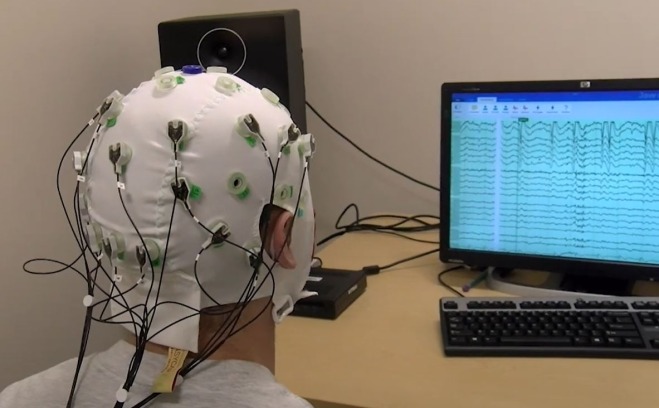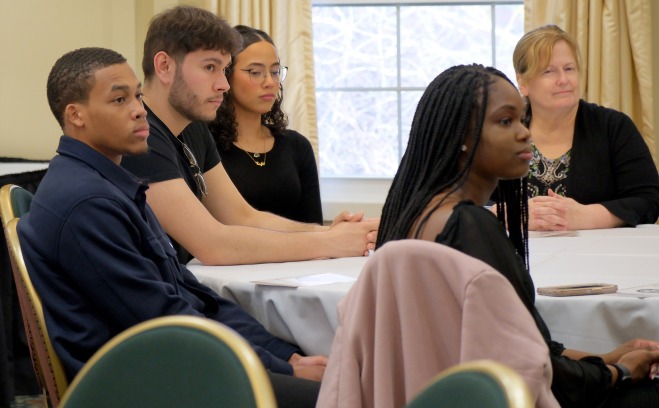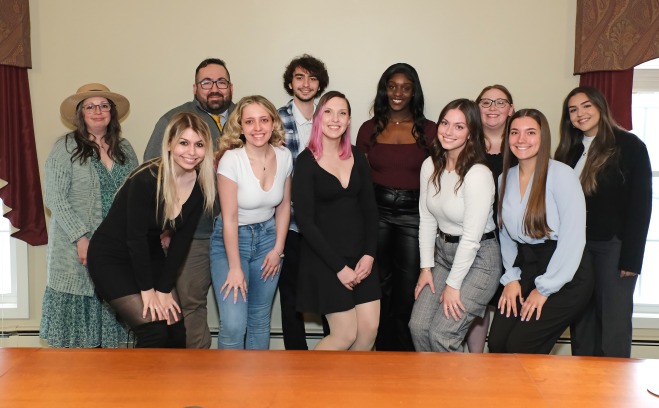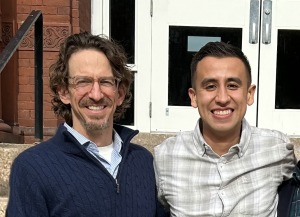
Psychology is the scientific study of the mind and human behavior. Choosing a major under our department prepares you for a variety of careers, including human services, human resources, marketing, advertising, sales, and many others.
Check out the Burg Blog for more from our department.
Major and Minors
Psychological Science BA/BS
Psychological Science Minor
Neuroscience, Behavior, and Cognition Minor
Course Rotation, Plan of Study, and University Catalog
- Two-Year Course Rotation (PDF)
- Four-Year Plan of Study
- University Catalog
- Major Requirements (PDF)
- Major Requirements for catalog years prior to Fall 2023 (PDF)
Meet Our Faculty and Staff
Internship Information
The Internship Coordinator for Psychological Science is internship contact to be Dr. Christopher Adams. He can be reached at cadams15@fitchburgstate.edu
See below for information specific to an internship in Psychological Science.
An internship is a capstone experience in which students have the opportunity to apply their knowledge of psychological research, theories, and explanations for human behavior. Students will develop competence in the discipline of psychological science through a field placement, as well as a weekly seminar led by a faculty member.
What is a typical field placement?
Field placements are diverse, but frequently include schools, businesses, hospitals and other medical settings, research programs/facilities, mental health and social service agencies, and non-profit organizations.
What types of tasks will I be doing at internship?
Internship tasks will depend on the placement site. While there is not a set list of tasks each intern needs to do on-site, there are several tasks that would be considered inappropriate for an internship placement. Please review the following chart for examples.
| Appropriate Internship Tasks | Inappropriate Internship Tasks |
|---|---|
| Providing psychoeducational services under the supervision of an appropriate, qualified supervisor | Restraints/holds (even if the intern is trained) |
| Attending meetings with supervisors, contributing when appropriate | Clerical work (making copies, filing, etc.) beyond what supervisors typically do |
| Completing project-based tasks such as literature reviews, participant recruitment, data collection, and analysis; database development and maintenance | Acting as an interpreter or translator (Students may use language skills, however this may not be in the place of direct service learning experiences. Please note, students are training as human service professionals, not interpreters) |
| Behavioral observations, survey administration | Transporting clients in their personal vehicles |
| Program Evaluation |
If you have questions about whether or not a task would be seen as appropriate, please ask the internship coordinator. Regardless of what tasks are assigned, we expect students to maintain the utmost professionalism throughout their internship experience. This includes skillfully and ethically working with the individuals served, interacting appropriately with colleagues and supervisors, dressing appropriately, and arriving on time and maintaining an agreed upon schedule.
What are the qualifications/requirements for doing an internship?
Typically, students should be in their final semester at the university. Students wishing to complete an internship should also have a minimum of a 2.5 overall GPA and major GPA; in addition, students must have made up any “0” grades within the major. Students must also have taken relevant courses and sought out others to adequately prepare them for the sort of internship they are seeking. Last, students must demonstrate appropriate professionalism.
How do I apply for internship?
Students should express interest to their academic advisor at least 2 semesters before they plan on completing an internship. If you are interested in applying for an internship, the first step is to attend the mandatory internship planning meeting at the beginning of the semester before you intend to do an internship. Complete the Internship Intent Form (PDF) which is due two weeks after the mandatory meeting. Return it to Dr. Goldman.
How do I find an internship?
Ultimately, it is your responsibility to locate a site that is willing to take you on as an intern.
Go to the Career Services Office to begin the process. They will help you prepare for an internship (i.e., update your resume, explore internship options, prepare for an interview). Once a student is accepted by an internship site, return the University’s contract, signed by the site supervisor and their boss, and a learning plan to Dr. Goldman, the latest by the first Friday in December for a Spring internship and in May for a Fall internship.
What is the approval process like for an internship?
Once your materials have been received, faculty will review them and your qualifications for completing an internship and make their recommendation to the internship coordinator and committee. If approved to pursue an internship for psychological science credit, you will be notified by the internship coordinator regarding their decision. If not approved for credit, the student may choose to do the internship on a volunteer basis.
How long is a student’s internship?
The student is required to spend the corresponding number of average hours per week in placement for each credit load:
- 6 credits: 15 hours, totaling 225 hours
- 9 credits: 22 ½ hours, totaling 337.5 hours
- 12 credits: 30 hours, totaling 450 hours
How will I be supervised?
You will receive individual supervision from a supervisor at your internship site. For a 6-credit internship, you must receive at least 30 minutes of face-to-face supervision per week; for a 9-credit internship, you must receive at least 45 minutes; for a 12-credit internship, you must receive at least 60 minutes.
You will also receive supervision from a faculty member in Psychological Science. During semesters when there are enough students, you will be placed in a section of an Internship Seminar class where you would receive group supervision with other students. If there are not enough students to run a section of the Internship Seminar, the department chair would assign you to a faculty member for individual supervision.
How is the internship seminar structured?
Interns attend ten, 2-hour seminars on campus during the semester. The seminar provides an opportunity for students to integrate their academic work with field experience through various assignments and discussions. The focus of the seminar will be on five different areas:
- Professional and ethical Issues
- Evidence-based practice
- Career development,
- Connection of psychological theory to practice
- Interpersonal and professional skills.
In addition, students will receive supervision from their faculty instructor and group supervision from their peers. Seminar attendance is mandatory.
What are the faculty supervisor’s responsibilities?
Faculty supervisors are expected to provide individual and/or group supervision to interns and are responsible for developing relevant coursework for the internship experience. They must maintain open communication with the internship sites and conduct at least two visits with students’ internship sites, one of which must be on-site. Faculty supervisors are also responsible for helping students problem-solve any difficulties they may be experiencing at their internship site, and may intervene/advocate on a student’s behalf when indicated.
What is expected of on-site supervisors?
Supervisors serve as mentors to our students; therefore, we require that they have the educational and experiential background that brings such expertise. Ideally, supervisors
should hold at least a Master’s degree in a related field, an appropriate professional license (if applicable), and 5+ years of relevant work experience, although exceptions will be considered by the internship committee.
On-site supervisors must provide students with a minimum of an hour of supervision per week for a 12-credit internship (or ½ hour for a 6-credit placement and ¾ hour for a 9-credit placement). The schedule and format of supervision is flexible to the particulars of the placement site. Supervision should focus on providing direct, constructive, and timely feedback regarding the student’s work performance, interpersonal behaviors, work habits and planning, and areas of strength/improvement. Supervisors will be asked to complete a student evaluation at the end of the internship placement; this feedback will be used by the faculty supervisor in determining a final grade for the internship.
How are schedules determined?
Interns work with their site supervisor to create a schedule. Students are expected to maintain that schedule, unless prior arrangements have been made with the site supervisor.
Can I have a paid internship?
The Psychological Science department may approve paid internships if it can be shown that the internship is an appropriate educational/learning experience and not an employment experience.
Things to consider about your internship placement
- What are your career goals? (For example, are you interested in going to graduate school? If so, what type of experience may the admissions committee be looking for you to have?)
- Talk to your advisor! Your advisor is a great resource to you, and is familiar with many of the area internship placement sites.
- Go to Career Services if you are still unsure about where to go and want to explore your career development further.
- Do you have a criminal record? If yes, depending on the severity of the record, this may impact your ability to be placed at an internship site.
- If you’ve taken Human Services courses: Where have you done your previous practicum placements? Do you have any connections where you did your practicum? Do you want to go somewhere similar? Or, do you want to try something different?
Steps to getting your internship
- Attend the internship planning meeting.
- Discuss your plans for an internship with your academic advisor at least 2 semesters before the semester you want to do the internship.
- Obtain the Internship Intent Form (PDF) here or from Dr. Goldman.
- Complete the Internship Intent Form and return it to Dr. Goldman two weeks after the mandatory internship meeting. (Note: Intent forms submitted after this date will not be accepted – no exceptions.)
- Go to Career Services. They will help you update and improve your resume, locate an internship site, and prepare for an interview.
- If you are made an offer by a site, please let Dr. Goldman know at the latest by the first week in December for the Spring Semester or by the first week in May for the Fall Semester.
- Once you have obtained the internship, bring the University Contract signed by the site supervisor and signed by the person the site supervisor reports to, along with a learning goals plan to Dr. Goldman.
- The Internship Coordinator and the Student Affairs Committee will determine if the internship qualifies for college credit.
- If the internship does not quality for credit, students may pursue the internship with Career Services on a volunteer basis.
- If you are not interested in a site after the interview, send the site a thank you note politely explaining that you are no longer interested in pursuing an internship there. Investigate other sites and schedule interviews as needed (one at a time).
- You will be notified how to register for the Internship Seminar as the end of the semester gets closer. Please make sure all holds are off your record so that you can register.
- Start your internship and attend the Internship Seminar in the next semester! The first possible start date is day one of the fall semester. Don’t forget to email or call Dr. Goldman if you have any questions, concerns, or emergencies with your internship placement.
Note: Please be sure to register for classes during registration as if you were not going to do an internship. That way, you will have classes on your schedule should you be unsuccessful in securing an internship placement.
Contact Information:
Dr. Cheryl Goldman McKay 272
cgoldman@fitchburgstate.edu 978.665.3606
Hands-On Learning
Beyond the Classroom
Advanced Degrees
Your education doesn't have to end with a bachelor's degree.
The following graduate programs can lead to careers in human resources, mental health and school guidance counseling, teaching, and research.
- Clinical and Counseling Psychology
- Industrial/Organizational Psychology
- Social/Personality Psychology
Careers
It's never too early to start thinking about your career.
Psychological Science students may qualify for membership in the Fitchburg State University Chapter of Psi Chi, the International Honor Society in Psychology, upon completion of:
- At least three semesters (45 credits) of college coursework and
- At least three courses (9 credits) in psychology at Fitchburg State University, including PSY 2100 Research Design and Analysis II or PSY 2050 Research Methods and Statistics 2
Students are eligible for induction if the following criteria are met:
- Minimum overall GPA of 3.3
- Minimum GPA of 3.0 in the Psychological Science major
- Minimum average GPA of 3.0 across both PSY 2000 Research Design and Analysis I and PSY 2100 Research Design and Analysis II or PSY 2040 Research Methods and Statistics 1 and PSY 2050 Research Methods and Statistics 2
- Support from the Psychological Science faculty
Clubs and Organizations
- American Psychological Association
- Association for Psychological Science
- Psi Chi (International Honor Society in Psychology)
- Psychological Science Club
- Human Subjects Committee
- SONA - Research Participation System








